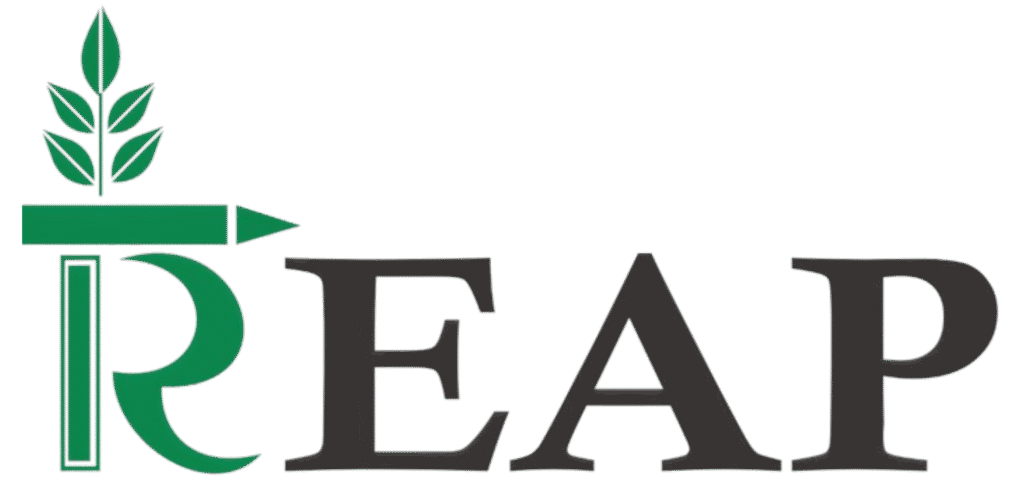STEM Learning
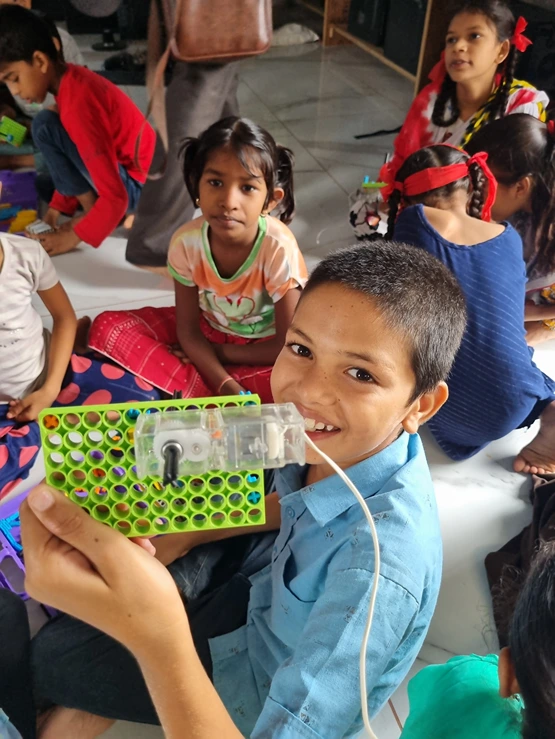
Teach Better, Grow Better
At REAP (Reach Education Action Programme), we recognize the importance of equipping children with the skills and knowledge they need to thrive in the 21st century.
Our STEM (Science, Technology, Engineering, and Mathematics) program is designed to bridge the educational gap for children in slum areas by providing them with hands-on learning experiences in Robotics, Coding, and Artificial Intelligence (AI).REAP works to equip young learners from grade-1 onwards to access knowledge and skills on STEM subjects (I.e. Science, Technology, Engineering and Mathematics) relevant to 21 st century industry needs.
STEM makes it simpler for students to understand complex concepts given in their syllabus through hands on activities and experiential learning. Children enjoy learning with fun, creativity, critical thinking, and group work; acquire problem solving skills by attempting to solve real life problems. Design thinking is the core of our STEM learning process.
The new National Education Policy, 2020 and Curriculum Framework, 2023 has given special emphasis on STEM learn. Globally, STEM learning has become an integral part of the education system. In India, some of our best schools in private sector are yet to fully integrate it into their teaching and learning. The Government schools are yet to come up with such plans on STEM training. Understanding its importance and need for STEM learning for the disadvantaged children, children with disability and girls, REAP developed its STEM Learning programme.
Our Programs
Robotics
Our Robotics programme introduces children to the exciting world of mechanical design and engineering. Using age-appropriate robotics kits, students learn how to build working models such as gear-changing cars, cranes, marble runs, and sensor-based vehicles. These activities help children understand fundamental concepts like gears, pulleys, levers, and motion through experiential learning. The Robotics sessions also encourage teamwork, logical thinking, and design innovation. Children don’t just build models; they learn to observe, question, and apply scientific principles in real time.
Coding
Our Coding module focuses on developing digital literacy and computational thinking among children. Starting with beginner-friendly platforms like Scratch, students learn the basics of coding by creating simple games, animations, and interactive stories. They explore concepts such as algorithms, sequencing, loops, and conditionals. The aim is to shift children from being passive users of technology to becoming active creators and problem solvers. Even those with no prior exposure to computers quickly build confidence and enjoy experimenting with code.
Science Projects and Experiments
To make science relatable and exciting, we conduct a variety of hands-on science experiments and DIY projects. These activities allow students to explore scientific concepts like density, air pressure, filtration, and chemical reactions in a fun and engaging way. Children participate in simple experiments such as making a homemade water filter, observing dancing raisins in soda water, or creating their own lava lamps. These projects not only bring textbook science to life but also encourage curiosity, observation, and inquiry-based learning
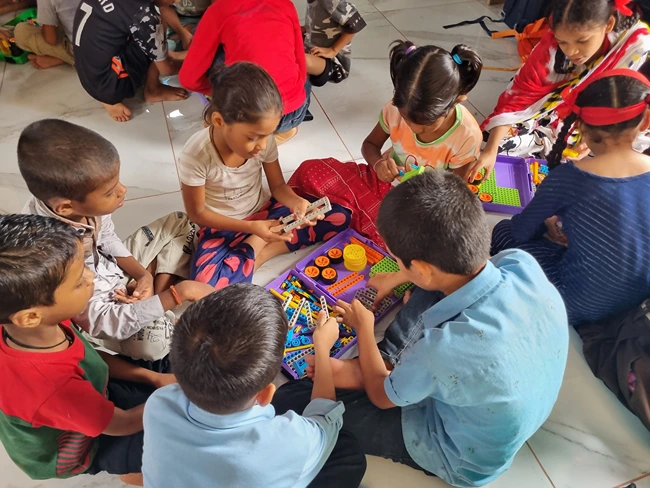
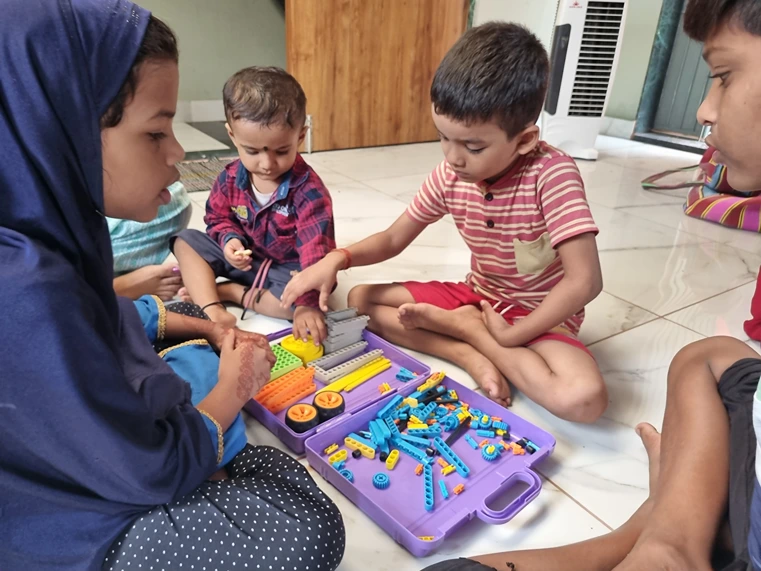
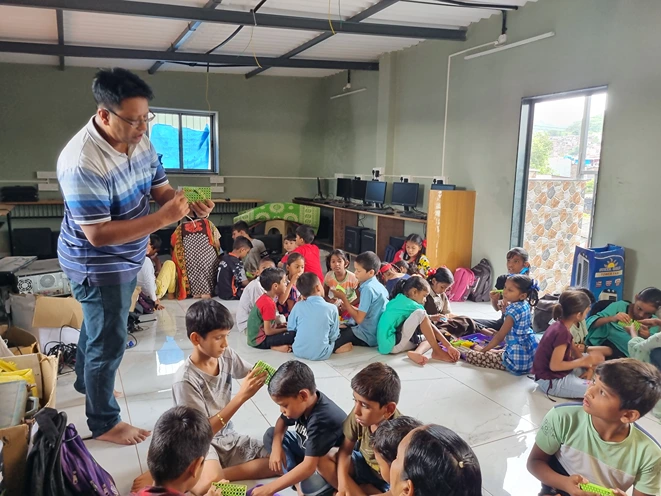
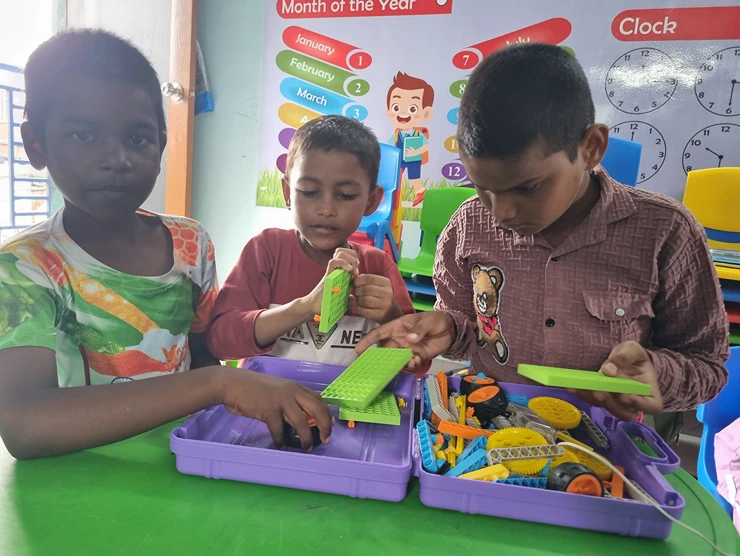
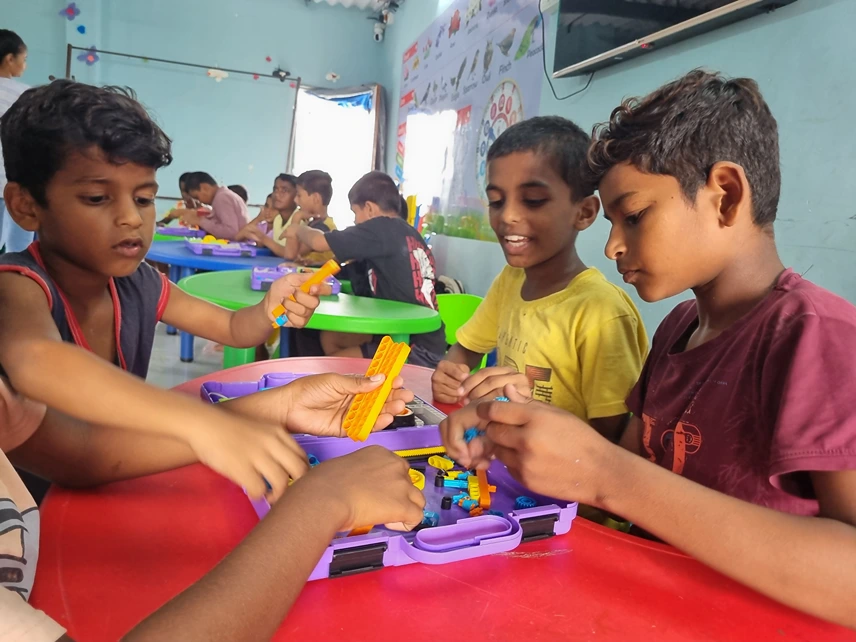
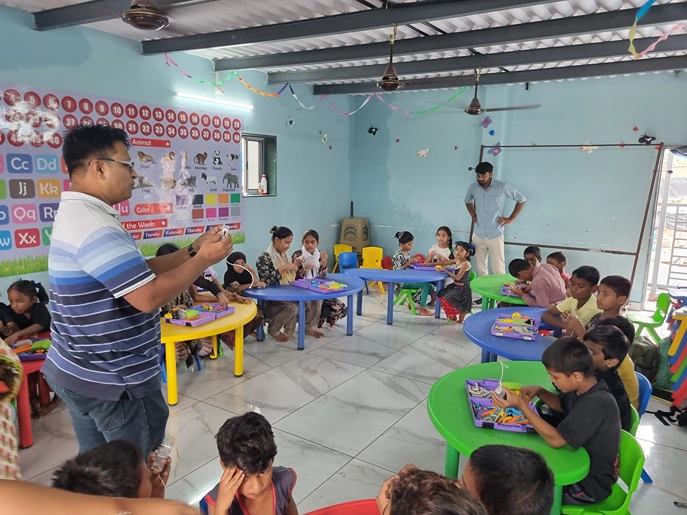
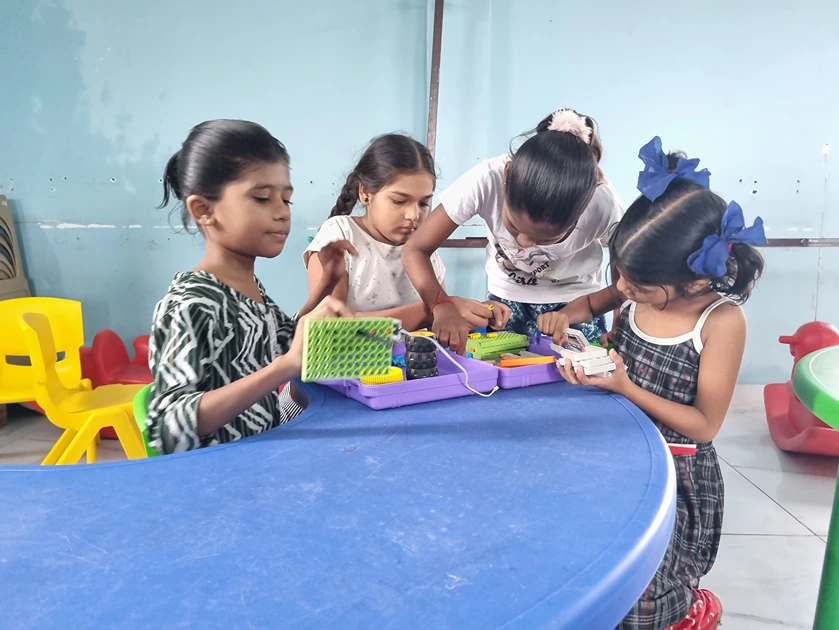
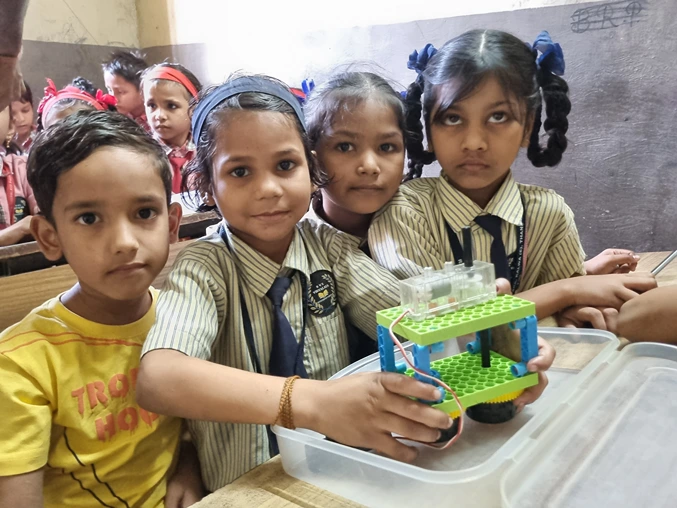
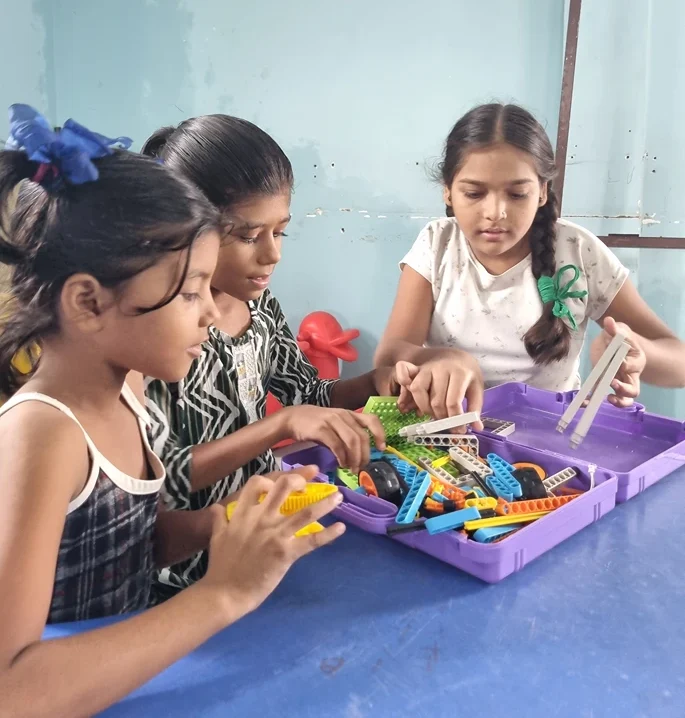
OUR STEM VISION
Our STEM vision is to nurture future scientists and technocrats to solve emerging societal challenges through the use of innovative learning products under the REAP EcoSTEM Programme. This initiative is complemented by specialized training in robotics, artificial intelligence, and coding. We aim to ignite curiosity, foster analytical thinking, and build 21st-century skills among students and youth.
By integrating hands-on experiences, real-world problem-solving, and sustainability-focused innovation, we empower learners to become creative thinkers, ethical leaders, and responsible global citizens. Our curriculum encourages teamwork, research-oriented learning, and interdisciplinary thinking that connects science, technology, and environmental stewardship.
Our goal is to create a generation of innovative problem solvers and sustainability champions who will shape a better, more resilient future.
Program Highlights
- Hands-On Learning: Our STEM program is designed to be interactive and engaging, with a focus on project-based learning. Students work on real-world challenges and see the immediate impact of their efforts.
- Expert Instructors: Our instructors are passionate professionals with experience in STEM fields. They are dedicated to making complex concepts accessible and exciting for young learners.
- Community Integration: We bring STEM education directly to slum communities, ensuring that even the most underserved children have access to these vital learning opportunities.
- Future-Ready Skills: By focusing on Robotics, Coding, and AI, we equip children with skills that are in high demand, setting them up for future academic and career success.
